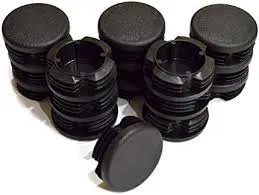Mobile:+86-311-808-126-83
Email:info@ydcastings.com
pump impeller casting
The Importance of Pump Impeller Casting in Modern Engineering
In the world of engineering, especially in fluid dynamics, the efficiency and reliability of pumps are paramount. One of the critical components that directly influences the performance of a pump is the impeller. The design and manufacturing of pump impellers have seen significant advancements over the years, among which casting methods play a crucial role.
Pump impeller casting is the process of creating impellers from molten metal. This technique is favored for its ability to produce complex shapes with high precision, which are essential for optimizing fluid flow and minimizing energy loss. The casting process allows for the production of impellers with intricate features, such as curved blades and specific geometrical configurations, which are essential for enhancing the pump's overall performance.
There are several methods of casting used in the manufacturing of pump impellers, including investment casting, sand casting, and centrifugal casting. Each method has its own advantages and is chosen based on the specific requirements of the impeller design. For instance, investment casting is known for its ability to produce detailed and dimensionally accurate components, making it ideal for high-performance applications where precision is critical.
pump impeller casting

The choice of material for casting is vital in determining the impeller's strength, durability, and corrosion resistance. Common materials used for cast pump impellers include various grades of stainless steel, bronze, and specialized alloys, which are selected based on the fluid being pumped and the operating environment. The casting process enables manufacturers to create robust impellers that can withstand harsh conditions and prolonged use.
Another significant advantage of pump impeller casting is its cost-effectiveness, especially for large-scale production runs
. Once the initial mold is created, numerous identical impellers can be produced at a relatively low cost. This scalability is essential for meeting the demands of various industries, including water treatment, oil and gas, and chemical processing.Moreover, advancements in casting technologies, such as computer-aided design (CAD) and simulation software, have led to improved designs and reduced waste. Engineers can now predict how the molten metal will flow in the mold, allowing for optimization of the casting process before any physical production begins. This reduces defects and increases the overall quality of the impellers.
In conclusion, pump impeller casting is a vital part of modern engineering that enhances the efficiency, reliability, and cost-effectiveness of pumps. As technology continues to evolve, we can expect further innovations in casting techniques, materials, and designs that will push the boundaries of what is possible in pump manufacturing, ultimately leading to better performance and sustainability in various industrial applications. The future of fluid dynamics heavily relies on these advancements, reaffirming the significance of casting in the engineering landscape.
-
Why Should You Invest in Superior Pump Castings for Your Equipment?NewsJun.09,2025
-
Unlock Performance Potential with Stainless Impellers and Aluminum End CapsNewsJun.09,2025
-
Revolutionize Your Machinery with Superior Cast Iron and Aluminum ComponentsNewsJun.09,2025
-
Revolutionize Fluid Dynamics with Premium Pump ComponentsNewsJun.09,2025
-
Optimizing Industrial Systems with Essential Valve ComponentsNewsJun.09,2025
-
Elevate Grid Efficiency with High-Precision Power CastingsNewsJun.09,2025











